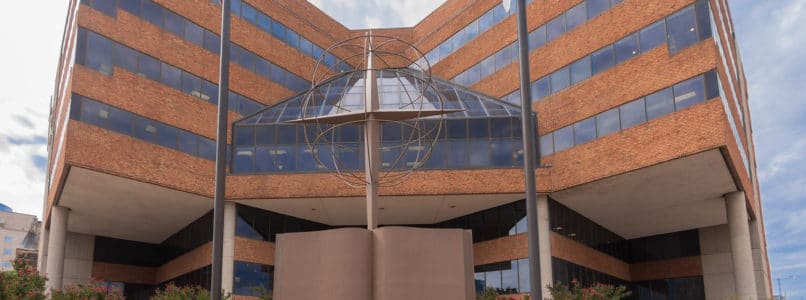NASHVILLE (BP) – Local Baptist associations are vital catalysts for unity in the SBC and the rebound of Cooperative Program giving, according to the three candidates for convention president who participated in a forum Sunday (June 13) hosted by the Southern Baptist Conference of Associational Leaders (SBCAL).
Northwest Baptist Convention executive director Randy Adams, Alabama pastor Ed Litton and Georgia pastor Mike Stone each recounted their experience with associations as well as their encouragement for associational leaders. Southern Baptist Theological Seminary President R. Albert Mohler Jr., the fourth announced presidential candidate, did not attend the SBCAL Presidential Candidates Forum because of other obligations in advance of the 2021 SBC Annual Meeting, which begins Tuesday (June 15).
The forum was part of SBCAL’s annual conference, which began Sunday and continues Monday at the Sonesta Nashville Airport Hotel. Moderated by Josh Ellis, executive director of Houston’s Union Baptist Association, the 30-minute conversation focused on whether associations remain relevant in the modern SBC.
Adams said he considers associational mission strategists “the key cooperative family in Southern Baptist life.” An associational leader is the only denominational worker most pastors know, he said, adding that any state convention or SBC initiative will have broader participation among churches if associations are included as ministry partners.
Adams said the “worst strategic mistake” Southern Baptists made in recent years was diverting CP money away from state conventions after the Great Commission Task Force recommended in 2010 that more funds be channeled to SBC-level ministries, Adams said. State conventions in turn cut their funding of associations, and associations had to scale back their efforts at connecting churches to the denomination.
CP giving from churches will rebound from its decade-long decline if more congregations connect with their local associations, Adams said. If Southern Baptist revitalization doesn’t occur at the associational level, “it’s not going to happen nationally or regionally.”
Litton, pastor of Redemption Church in Saraland, Ala., said if he’s elected SBC president, he will ask associations to lead churches in a season of fasting and prayer “for each of our associations, our state conventions and our national convention.”
When the SBC is fractured, “I believe the association is the place to solve those problems,” Litton said. Associations can “bring together pastors and other leaders in your churches” to share their experiences “so that we can once again begin to unify.”
The hard work of loving one another begins on the associational level, Litton said, noting that when “we come to the national convention, we love everybody,” but on a local level “it’s easy to see each other as competition.”
Stone, pastor of Emmanuel Baptist Church in Blackshear, Ga., said his commitment to Baptist associations has been reflected in his leadership at the local church and state convention levels. The staff at Emmanuel has “become almost an extension of the ministry of the association,” providing training for smaller congregations on behalf of the association.
When Stone served as chairman of the Georgia Baptist Convention Executive Committee, he helped craft a policy that limited to three years the period a church could cooperate with the state convention without also cooperating with an association. When churches are disconnected from their association, Stone said, cooperation at all levels of Southern Baptist life begins to break down.
“Everything flows from the local church,” Stone said. “So the first layer that we have of our cooperation in the Southern Baptist Convention is the local association.”
The forum closed with prayer led by Ellis for all the presidential candidates.
















